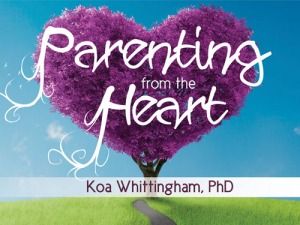How to prepare your child for academic success
The foundations for academic success are built in the preschool years and there is much that you can do, as the parent of a preschooler, to ensure that your child is well prepared to flourish at school. In order to promote your child’s academic flourishing it is necessary to understand where family and formal education fit into the picture. Formal education, including literacy and numeracy, can be thought of as multiple interlocking towers, built piece by piece, ever upwards. Some parents are tempted to begin building these towers at home, before school, in order to give their children a head start. In fact, I’d argue that your time is better spent building a stronger foundation. The towers of formal education all rest upon a foundation of oral language, curiosity, intelligence, relational concepts (relational frames) and social-emotional understanding. The stronger the foundation, the easier and quicker the towers will be built. So, how can we, as parents, help our children to build this strong foundation?
- Play, play, play and more play. Play is the engine driving intellectual development so make your children’s play a priority in your home. Provide opportunities for active play in playgrounds, for pretend play, for play with construction toys like blocks, for play with arts and crafts activities, for play alone, for play with other children and for play with you. Make sure you often let your child lead the play.
- Provide ample quality toys to facilitate play: blocks, dolls, lego, craft bits and pieces, train sets, tea sets, doll houses, pretend kitchens, trucks, toy animals, swings, slides… Quality toys are not a luxury or mere entertainment for a preschooler. Quality toys, for preschoolers, are what textbooks, computer access and pen and paper are for a High School student. Fortunately, we live a time when toys are cheap but if finances are an issue for you than consider buying second-hand or using a toy library and accessing your local park.
- Read to your child regularly. Make reading time special and allow yourself to delight in the pleasure of the written word. There are many delightful children’s books so find some favourites that you can enjoy too. If you can’t afford to purchase a selection of children’s books then access your local library. Talk to your child about the books that you are reading. Ask questions like: What do you think she will do next? How does he feel? What happened in that story? Who was that story about?
- Talk to your child. From birth onwards talk to your child often. Don’t restrict your language to the necessary chatter. Instead, verbalise your thoughts, count aloud, talk about colours, shapes, textures, animals, talk about your feelings and ask your child about their thoughts and feelings. Language exposure fuels language development. Language development enables academic success. Literacy, in particular, relies on oral language.
- Talk about relational concepts and words. Relational concepts (also called relational frames) relate two or more concepts in a specific way, for example: opposite, same, under, bigger than, before, and faster. Relational concepts underpin much of what we consider academic intelligence and many are key concepts in mathematics (e.g. bigger than). Notice relational concepts in your everyday life and find opportunities to explore relational concepts during play with your child. For example, during play with blocks you might ask, “Hey, which block is the biggest?”
Apply it to your life: Do you live these five tips? Is there a small step you could take in building a solid foundation for your child’s formal education? References: Hart & Risley (1995). Meaningful differences in the everyday experience of young American children. Baltimore, Paul H Brookes Publishing Co. Ginsburg, K.R. (2007). The importance of play in promoting healthy child development and maintaining strong parent-child bonds. Pediatrics, 119, pp182-191.










Leave a Reply
Want to join the discussion?Feel free to contribute!